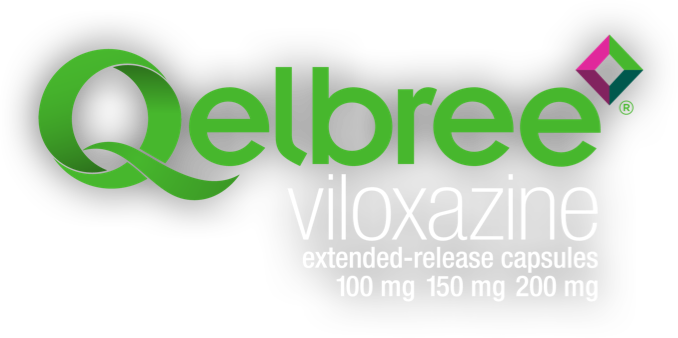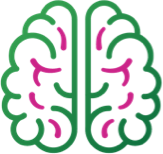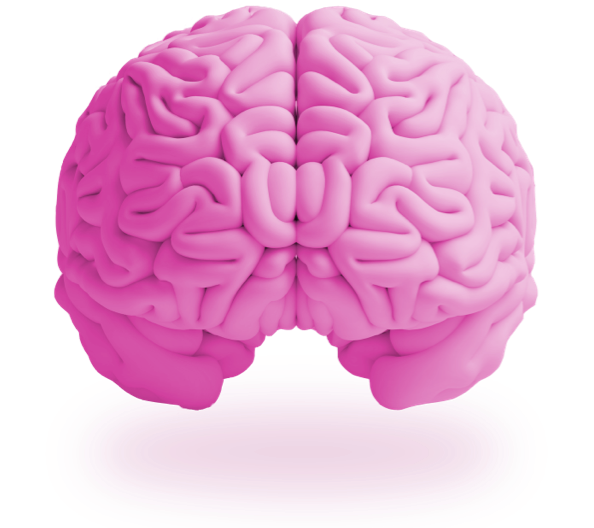
Understanding ADHD
The more you understand about ADHD and your diagnosis, the better you can navigate your treatment.
What is ADHD?
ADHD (attention-deficit/hyperactivity disorder) is a neurodevelopmental disorder, or a condition that affects how your brain grows and changes throughout your life.
Did you know? “Neuro” means “nerves.”
ADHD is characterized by an ongoing pattern of one or more of the following types of symptoms:
- Inattention, such as having difficulty paying attention, keeping on task, or staying organized
- Hyperactivity, such as often moving around (including during inappropriate times), feeling restless, or talking excessively
- Impulsivity, such as interrupting, intruding on others, or having trouble waiting one’s turn
Not everyone with ADHD experiences these symptoms the same way. Some people struggle more with inattention, while others struggle more with hyperactivity and impulsivity.
ADHD in the brain
There are a few neurotransmitters (chemical messengers in the brain) that are thought to play a role in ADHD, including dopamine and norepinephrine. Studies in people with ADHD show that these chemicals may be out of balance.
- Dopamine regulates several functions of the brain, including motivation, attention, and how our brain processes rewards. When dopamine levels are low, people may be more prone to impulsive decisions, low motivation, and trouble concentrating or paying attention
- Norepinephrine also regulates several functions of the brain, including alertness, attention, and stress responses. Those experiencing low norepinephrine can experience low energy, ongoing stress, and trouble focusing or concentrating
In addition to dopamine and norepinephrine, which are known to play a role in ADHD, some preclinical studies have also shown serotonin (another neurotransmitter) to play a role in ADHD symptoms such as inattention, hyperactivity, and impulsivity.
- Serotonin helps regulate a range of functions in the brain and body—mood, memory, stress, sleep, digestion, metabolism, and more. Low serotonin levels can lead to struggles with impulse control and sustaining attention
Understanding signs and symptoms of ADHD in adulthood
If you were diagnosed with ADHD as a child, your symptoms might have changed as you entered adulthood. You may find yourself more distracted versus the more hyperactive signs of childhood ADHD.
ADHD impacts 6% of the US adult population
What are some common signs of ADHD in adults?
Some symptoms of predominantly inattentive ADHD can include:
- Often failing to give close attention to details, like making frequent errors at work
- Trouble listening when spoken to
- Often losing or forgetting important items, like your phone or keys
Some symptoms of predominantly hyperactive and impulsive ADHD can include:
- Trouble staying seated or fidgeting
- Feeling restless or always “on the go”
- Interrupting others often
Combined (inattentive/hyperactive-impulsive) ADHD looks like a combination of both types of ADHD. As with any diagnosis, the conversation should always start with your doctor.
Did you know women are often less likely to be diagnosed with ADHD?
That doesn’t mean there isn’t a prevalence of ADHD in females. Women tend to mask or overcompensate for their symptoms, leading to a missed diagnosis of ADHD.
Is your treatment plan currently meeting your needs as an adult?
There are currently two types of treatment options for ADHD: stimulants and non-stimulants.
Managing your ADHD involves periodically reviewing your treatment needs. Some questions to ask yourself include:
- Are you on treatment?
- Is it meeting your goals?
- Do you ever feel the need to take “drug holidays” or breaks from your medication?

Talk to your doctor to help build a treatment plan that’s right for you
Start your Qelbree Doctor Discussion GuideHow much do you know about non-stimulant ADHD treatments?
Non-stimulants work differently than stimulants to help reduce ADHD symptoms. They may take a little longer to be fully effective, but some adults in a 6-week clinical study saw results with Qelbree as early as week 2.
Non-stimulant ADHD medications like Qelbree are non-controlled substances and have no potential for abuse compared to stimulants.
Ask your doctor if a non-stimulant like Qelbree could be right for you.

A quick tool to help reflect on your ADHD
Even as ADHD awareness continues to grow, it can be easy for adults to feel alone in their day-to-day struggles.
Take a look at these ADHD tools for adults and see which of these common adult ADHD experiences you can relate to.
ADHD in women and men
ADHD can present differently in women and men.




